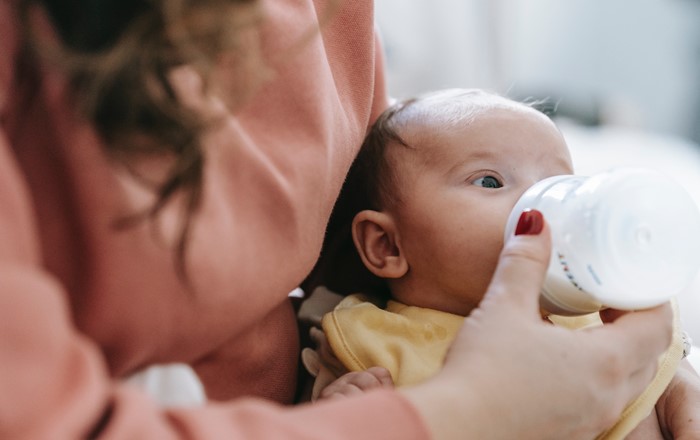
A collaborative community science project developed between parents and researchers to assess the safety of powdered infant formula preparation techniques in the home has been launched by Swansea University and independent public health nutrition charity, First Steps Nutrition Trust.
The Finding the right formula project, which has received funding from the Food Standards Agency (FSA) and UK Research and Innovation (UKRI), will set up an online community of 200 participants to share their experiences and for the research team to learn more about their typical methods for preparing powdered infant formula, with the results being shared with the public, health professionals and policymakers.
Dr Aimee Grant, senior research officer at the university’s Lactation, Infant Feeding and Translational Research (LIFT) centre, who is leading the study said:
“We are delighted to receive this funding; involving the public in science as co-researchers brings important new ideas to the fore. This is especially important with infant formula, where parents and carers have so much knowledge and experience.”
In the UK, the majority of babies are fed infant formula, with almost three-quarters receiving it in their first six weeks. Powdered infant formula is not sterile, so must be made using water that’s at least 70°C. The reason is that powdered infant formula is not, and cannot be made to be, sterile during manufacturing, and bacteria including salmonella and cronobacter can survive if the water used to prepare formula is not hot enough.
More than 3,000 babies are hospitalised in the UK each year because of gastrointestinal infections and another 10,000 are reviewed by a doctor in the community. Furthermore, infections caused by salmonella and cronobacter bacteria can result in meningitis, sepsis and rarely even death.
The LIFT team surveyed over 300 parents who use powdered infant formula and found one third of them reported lacking confidence in safely preparing it. One in 12 said that they do not always follow instructions; instead for example, boiling water, cooling it in the fridge and later making up the formula with the cold water, which may contribute to the bacterial infections associated with babies who are fed powdered infant formula.
Study manager and LIFT health visitor Dr Sara Jones said:
“We hope that this project will help improve understanding on why it’s important to make up bottles according to NHS guidelines in order to reduce the risk of babies getting tummy infections. This means making bottles up as they are needed using sterilised bottles and teats and water that’s at least 70°C. Our aim is that participants will share their experiences of making up formula bottles at home so we can better understand the barriers to following the NHS guidelines in real life.”
The study will also look at the safety of various formula preparation machines and baby kettles on the market following concerns over the safety of these gadgets.
Dr Vicky Sibson from First Steps Nutrition said:
“This study will allow us to understand more about the extent to which families use formula preparation devices and why, and to explore their safety. We believe that this is an important step towards improving the safety of powdered formula use in the UK.”
